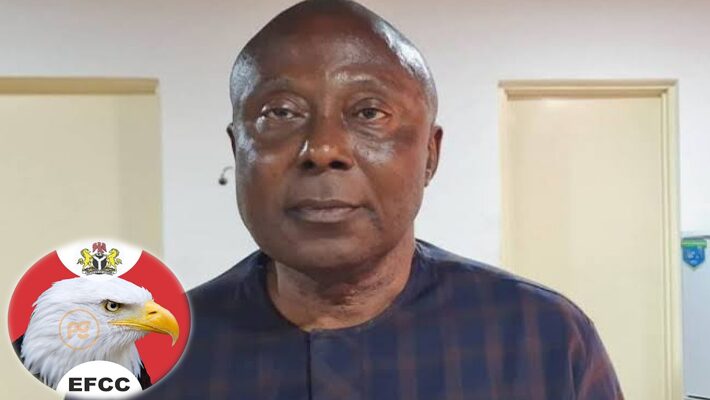- Stock Market Hits Two-year High, Soars by N218bn
The nation’s bourse recorded its highest return in over two years on Monday, as the Nigerian Stock Exchange market capitalisation appreciated by N218bn in one session.
At the close of trading on Monday, equities’ capitalisation rose to N11.943tn from N11.725tn recorded last Friday, while the NSE All-Share Index closed at 34,652.52 basis points from 34,020.37 basis points.
A total of 293.750 million shares valued at N3.949bn exchanged hands in 3,712 deals.
Monday’s performance was lifted by gains in Dangote Cement Plc as investors piled into the shares in anticipation of the company’s half-year earnings.
Dangote Cement, which accounts for a third of the total market capitalisation, rose by 2.44 per cent to lift the main share index by 1.86 per cent to a level last seen in May 2015.
Traders said investors were expecting strong half-year performances from listed firms as results start pouring in this month.
Overall, the Nigerian equities market recorded 1.86 per cent gain to settle the year-to-date return at 28.94 per cent. The market breadth closed at equilibrium with 20 gainers and 20 losers.
Transnational Corporation of Nigeria Plc emerged as a major gainer, advancing by 8.05 per cent, to close at N1.61 per share.
Dangote Cement Plc, Julius Berger Nigeria Plc, C & I Leasing Plc and Access Bank Plc’s shares soared by five per cent, 4.96 per cent, 4.92 per cent and 4.46 per cent, accordingly.
On the losers’ table was Aiico Insurance Plc, whose stock declined by five per cent to close at N0.57. Vitafoam Nigeria Plc, Unity Bank Plc and Berger Paints Plc also emerged top losers.
“The gain in the equities market could be attributed to the share price appreciation on some market heavyweights, particularly Dangote Cement, which recorded a five per cent advancement,” analysts at Meristem Securities Limited said in a post.
Performance as measured by the sector indices showed that the NSE industry, NSE banking and the NSE oil/gas indices closed positive, advancing by 2.51 per cent, 1.11 per cent and 0.12 per cent, respectively. However, the NSE food/beverage and insurance indices declined by 0.47 per cent and 0.42 per cent, accordingly.
The Nigerian stock market had seen a largely bearish performance after a sharp fall in crude prices from mid-2014, which resulted in foreign investors exiting the country’s financial markets.
The drop in oil prices also pushed the economy into recession, triggered a currency crisis and forced the Central Bank of Nigeria to introduce controls.
In April, the banking regulator partly lifted some restrictions to allow foreign players to bring in their hard currencies at market-determined rates. The move has spurred equities by more than doubling trading volumes.
The Nigerian equities market had attracted N2.715tn investments as of mid-July owing to the foreign exchange window for investors and exporters introduced by the apex bank on April 21 this year.
Stocks have seen a huge rally across board evident in the soaring NSE market capitalisation of listed equities, the All-Share Index, number of deals, as well as volumes traded vis-a-vis their values.
The NSE market capitalisation had appreciated by 31.04 per cent between April 20 (last trading day before the window’s opening) and July 14, from N8.748tn to N11.463tn.


 Naira4 weeks ago
Naira4 weeks ago
 News3 weeks ago
News3 weeks ago
 Education4 weeks ago
Education4 weeks ago
 Social Media4 weeks ago
Social Media4 weeks ago
 Economy4 weeks ago
Economy4 weeks ago
 Investment4 weeks ago
Investment4 weeks ago
 Dividends4 weeks ago
Dividends4 weeks ago
 Business3 weeks ago
Business3 weeks ago




























